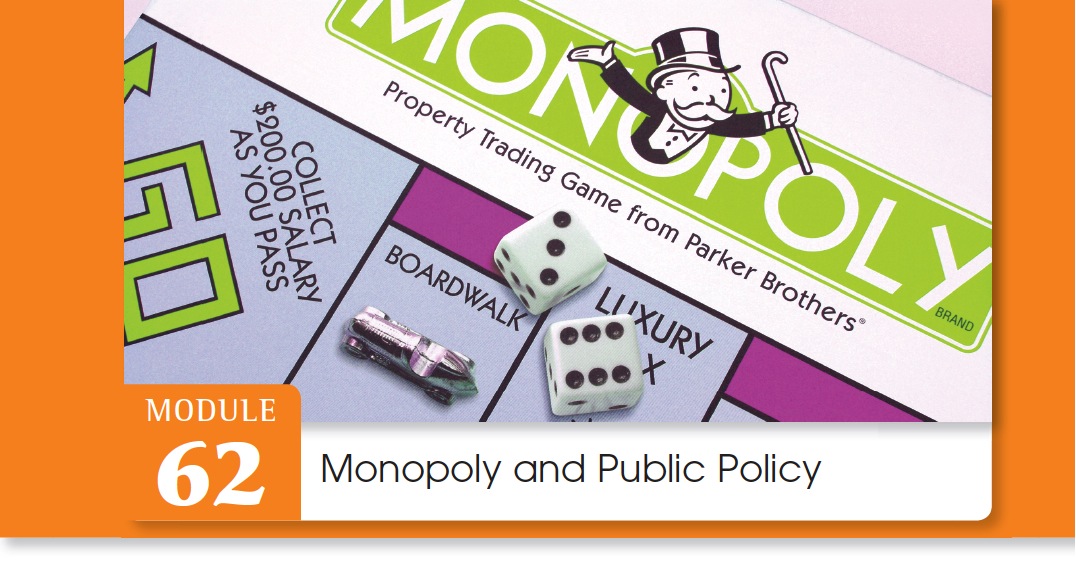Chapter Introduction
623
MODULE 62
Monopoly and Public Policy

In this Module, you will learn to:
Compare the effects of monopoly and perfect competition on society’s welfare
Explain how policy makers address the problems posed by monopoly
If you’ve ever played Hasbro’s Monopoly game, you know that it’s good to be a monopolist, but it’s not so good to be a monopolist’s customer. Players of the Monopoly game pay higher rents when they land on a monopoly. In real life, customers generally pay higher prices when the seller is a monopolist. But buyers and sellers always have conflicting interests when it comes to prices. Is the conflict of interest under monopoly any different from what it is under perfect competition?
The answer is yes, because monopoly is a source of inefficiency: the losses to consumers from monopoly behavior are larger than the gains to the monopolist. Because monopoly leads to net losses for the economy, governments often try either to prevent the emergence of monopolies or to limit their effects. In this module, we will see why monopoly leads to inefficiency and examine the policies governments adopt in an attempt to prevent this inefficiency.